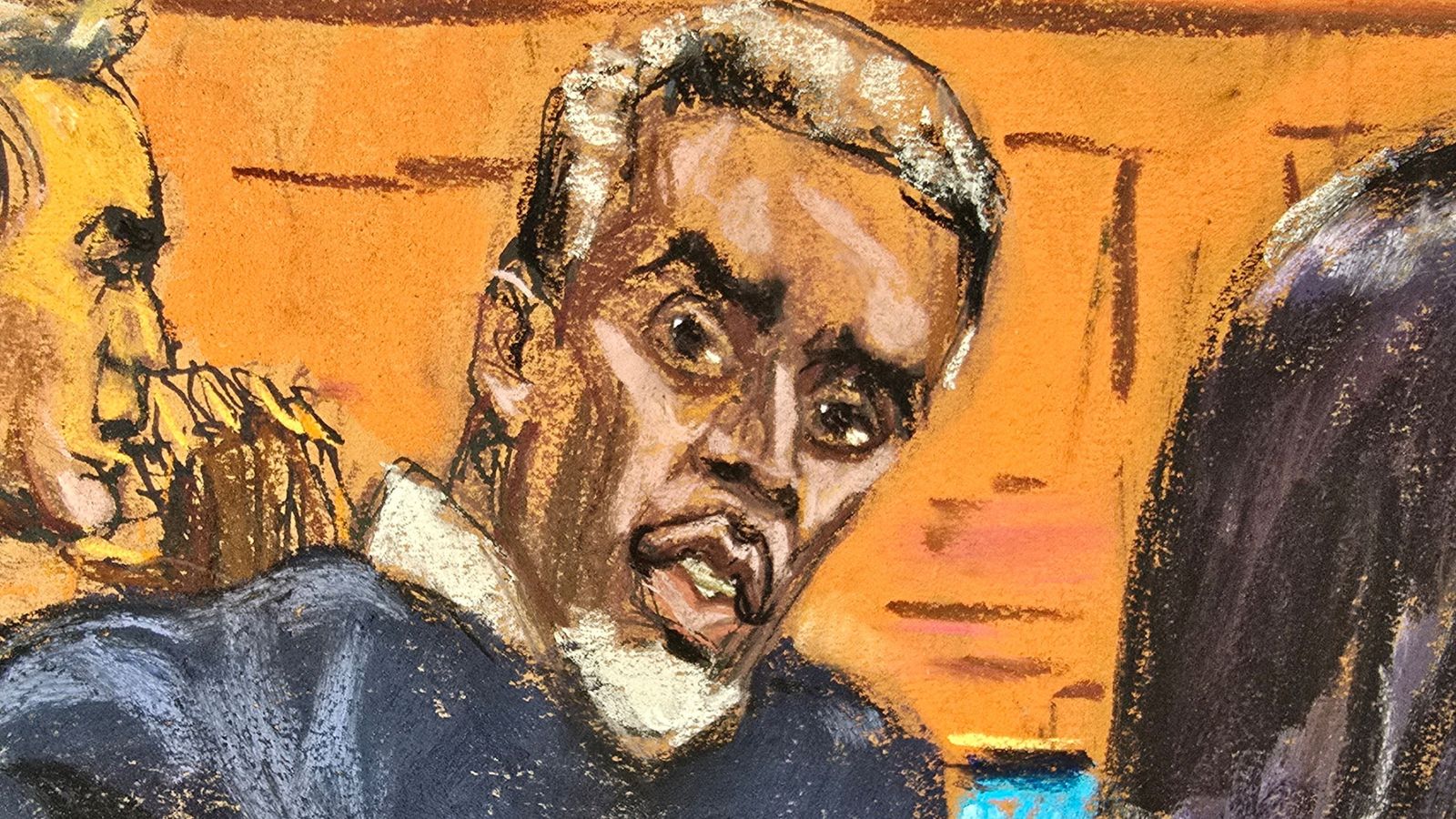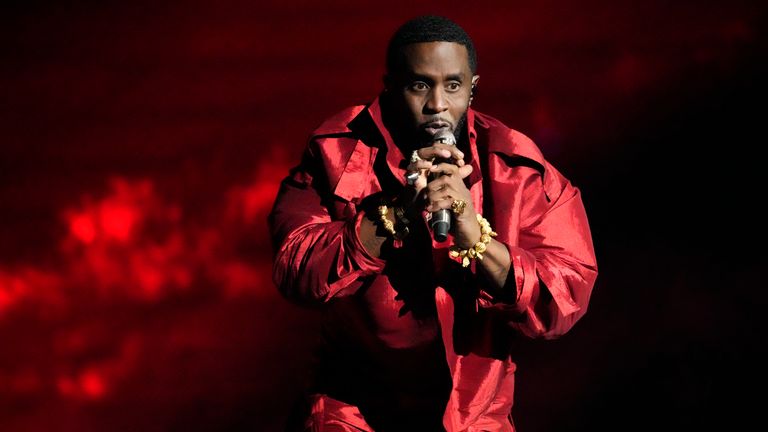
Sean “Diddy” Combs is set to be sentenced over prostitution-related charges next week.
The hip-hop mogul has already served just over a year in prison after being arrested in New York in September 2023.
Following his high-profile trial earlier in 2025, he was found guilty of two counts of transportation for engagement in prostitution – but cleared of the more serious charges of sex-trafficking and racketeering conspiracy.
Combs, 55, was one of the most influential hip-hop producers of the 1990s and 2000s, the founder of Bad Boy Records and a Grammy-winning artist in his own right.
Now, he faces up to 20 years in jail – although his defence team is arguing for much less.
Here is everything you need to know ahead of his sentencing.
What is transportation to engage in prostitution?
During the trial, the court heard details of sexual encounters called “freak offs” by Combs – also referred to as “hotel nights” – which involved his girlfriends and male sex workers.
The rapper would “orchestrate” these encounters between the women and the sex workers, while he watched. Sometimes, these sessions would take place in different states across the US, as well as abroad, and Combs would pay for the sex workers and the women to travel.
He was found guilty of two charges – one relating to sex workers he paid for while in a relationship with singer and model Cassie Ventura, and another relating to sex workers who took part in sessions with Jane*, a woman he was later in a relationship with who was not identified during the trial.
The charges fall under America’s Mann Act, which prohibits interstate commerce related to prostitution.
What about the other charges?
Combs was found not guilty of two counts of sex-trafficking, relating to both Cassie and Jane, and one count of racketeering conspiracy.
This means while jurors believed Combs broke the law over using sex workers, they did not find the sexual encounters involving the women were non-consensual, which is what prosecutors had argued.
Both Cassie and Jane gave evidence, telling the court they felt manipulated and coerced, and sometimes blackmailed, into taking part in the freak offs during their relationships with the rapper. However, defence lawyers argued these were consensual encounters and part of a “swingers lifestyle”.
“The men chose to travel and engage in the activity voluntarily,” defence lawyers said in legal submissions after the verdict. “The verdict confirms the women were not vulnerable or exploited or trafficked or sexually assaulted during the freak offs or hotel nights.”
What is racketeering?
Racketeering broadly means engaging in an illegal scheme or enterprise, and the charge falls under the Racketeering Influenced and Corrupt Organisations Act (RICO) in the US. According to the US justice department’s definition of RICO statute, it is also illegal to “conspire to violate” the laws.
Prosecutors alleged Combs led a racketeering conspiracy “that engaged in sex trafficking, forced labour, kidnapping, arson, bribery, and obstruction of justice, among other crimes”. However, jurors also cleared him of this charge.
Had he been found guilty of the more serious charges, he could have faced life in prison.
Will Combs be jailed for 20 years?
Each charge of transportation to engage in prostitution carries a maximum sentence of 10 years, so in theory he could be sentenced to up to 20 years in prison.
However, it is thought his sentence will be less than this. Following the verdict, prosecutors said he should be sentenced to at least four to five years.
The music mogul has been denied bail several times since his arrest and again since the trial.
What do his lawyers say?
Following the trial verdict, both prosecutors and the defence team have made arguments to the judge about sentencing.
Most recently, Combs’s lawyers submitted a legal submission to the court calling for the rapper to be jailed for no more than 14 months – which after time already served would mean him walking free almost immediately.
Before this, they called for Combs to be acquitted or for a retrial on the prostitution-related charges. The US government “painted him as a monster”, they said, but argued his two-month trial showed the allegations were “not supported by credible evidence”.
The rapper’s lawyers have argued that, to their knowledge, he is “the only person” ever convicted of the Mann Act charges for the conduct he was accused of in court.
What has the judge said?
Judge Arun Subramanian, who presided over the trial, will decide Combs’s fate.
He has previously decided several times not to grant bail, saying the hip-hop mogul’s team have failed to show sufficient evidence he is not a flight risk and also citing admissions of previous violence made during the trial.
During her opening statement, Teny Geragos, who is on Combs’s defence team, described him as “a complicated man” and conceded he could be violent. However, she argued, this was not the charge against him.
Will Combs try to revive his career after ‘unspeakable shame’?
Despite being convicted of the prostitution-related charges, his lawyers hailed the verdict a “victory”, given he was cleared of the more serious allegations. In interviews since, they have said he is planning a return to music with a New York gig.
However, in legal submissions, they have also said the trial brought Combs “unspeakable shame and monumental adverse consequences” and that his “legacy has been destroyed”.
Read more:
The rise and fall of Sean Combs
After allegations against him were made public, Combs was removed from the boards at three charter schools he created in Harlem, the Bronx and Connecticut and was also stripped of an honorary doctorate degree from Howard University, which plans to return his prior donations, they said.
He was also forced to return the key to the city of New York that was previously presented to him by the mayor, and his career has “collapsed”.
As well as this case, he is also still facing several civil lawsuits – and has “mounting legal bills” from defending these and the criminal charges, his lawyers have said.


















